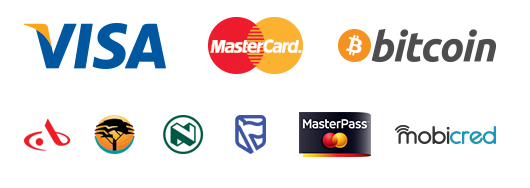Table of Contents:
- Introduction to the Context of the Gambling Industry
- Comparing Gambling Markets: South Africa, Great Britain, and Australia
- The Issues with the National Lottery and its Purpose
- The Downfall of Phumelela Gaming and Leisure Limited
- Hollywood Bets and World Sports Betting: Rising Stars
- The Future of Horse Racing and Gambling in South Africa
1. Introduction to the Context of the Gambling Industry
The gambling sector in South Africa is on the verge of evolving into a trillion-rand industry. Making opinions without relevant facts can lead to unwise choices, similar to placing bets on horses without analyzing their performance beforehand.
Let’s take a look at the background as we delve into the challenging history of the racing industry. This examination will shed light on how we reached our current situation and help us identify possible factors and logical strategies to steer horseracing towards stability and financial success.
The primary aim is to ensure that all participants in this sport benefit from its success and are not unfairly treated. With the expansion of the gambling industry, numerous South African players are looking into international opportunities, such as best Playtech casinos, which have established a notable presence in the global gaming market.
2. Comparing Gambling Markets: South Africa, Great Britain, and Australia
Great Britain is home to 68 million residents, whereas South Africa has a population of 60 million. As reported by the UK Gambling Commission, the overall gambling market in Great Britain reached £15.1 billion (approximately R384 billion).
South Africa has a total market valued at R815 billion, more than double that of Great Britain. Nevertheless, when it comes to GDP per capita, Great Britain’s figure is $45,000—six times higher than South Africa’s $7,000.
Do we really have a propensity to gamble that is 12 times that of Great Britain?
Australia's overall gambling market reached A$25.49 billion (approximately R312 billion), serving a population of around 25 million residents. When we calculate the total spending per person, it shows that Australians spend an average of R12,450 each. In contrast, South Africans tend to spend more, averaging R13,583.
South Africa represents over fifty percent of the total gambling activities in Africa. This clearly indicates that we are a country with a strong inclination toward gambling.
3. The Issues with the National Lottery and its Purpose
When the National Lottery was created, the South African government anticipated that it would emerge as the leading type of gambling in the country. It even received its own legislation, distinct from the National Gambling Act. Nevertheless, its outcomes have fallen significantly short of expectations.
Many people claim that participating in a State Lottery is mainly for those who lack an understanding of arithmetic! For example, with R5.6 billion wagered on the Daily Lotto at R3 per ticket, the chances of winning are 200 million to one.
South Africans are quite adept at arithmetic! In reality, data indicates that other forms of gambling, such as casinos and bingo, provide better returns for players compared to the National Lottery. Despite its large-scale operation, the lottery has shown a disappointing effect on participants.
4. The Downfall of Phumelela Gaming and Leisure Limited
Phumelela Gaming and Leisure Limited, which appeared to be on the path to great success, ultimately filed for bankruptcy. This occurred despite acquiring all racing-related assets in the 1990s and enjoying early benefits in sports betting along with global co-mingling of tote wagering.
During a 28-year bull market, they had the potential to grow into a massive gambling enterprise that included casinos, online betting, bookmaking, media, and beyond. However, they failed to seize this chance. Their stock price reached its highest point at R23 before plummeting to zero, highlighting a significant missed opportunity for expansion.
Phumelela could have greatly benefited from the surge in gambling, potentially raising its share price to R435 and establishing a market value of R40 billion. Unfortunately, they failed to seize the opportunity to elevate horse racing as the premier sport in South Africa.
5. Hollywood Bets and World Sports Betting: Rising Stars
Currently, Hollywood Bets and World Sports Betting, both privately owned, have become significant contenders in the gambling sector, outpacing the established leaders.
In the world of horse racing, it resembles how the underdogs—once seen as unlikely contenders—rise to prominence, while the well-known favorites begin to struggle.
These companies have emerged from modest origins to compete with and even overtake major players in the gambling sector, fundamentally transforming the South African sports betting landscape.
6. The Future of Horse Racing and Gambling in South Africa
As we look to the future, the racing industry is undergoing a significant transformation. Officials are focused on revitalizing the sport and developing a more sustainable financial model, particularly through gambling.
The opportunity for South African horse racing to emerge as a global frontrunner remains viable. However, it will need focused investments and creative approaches to succeed in the competitive betting landscape.










